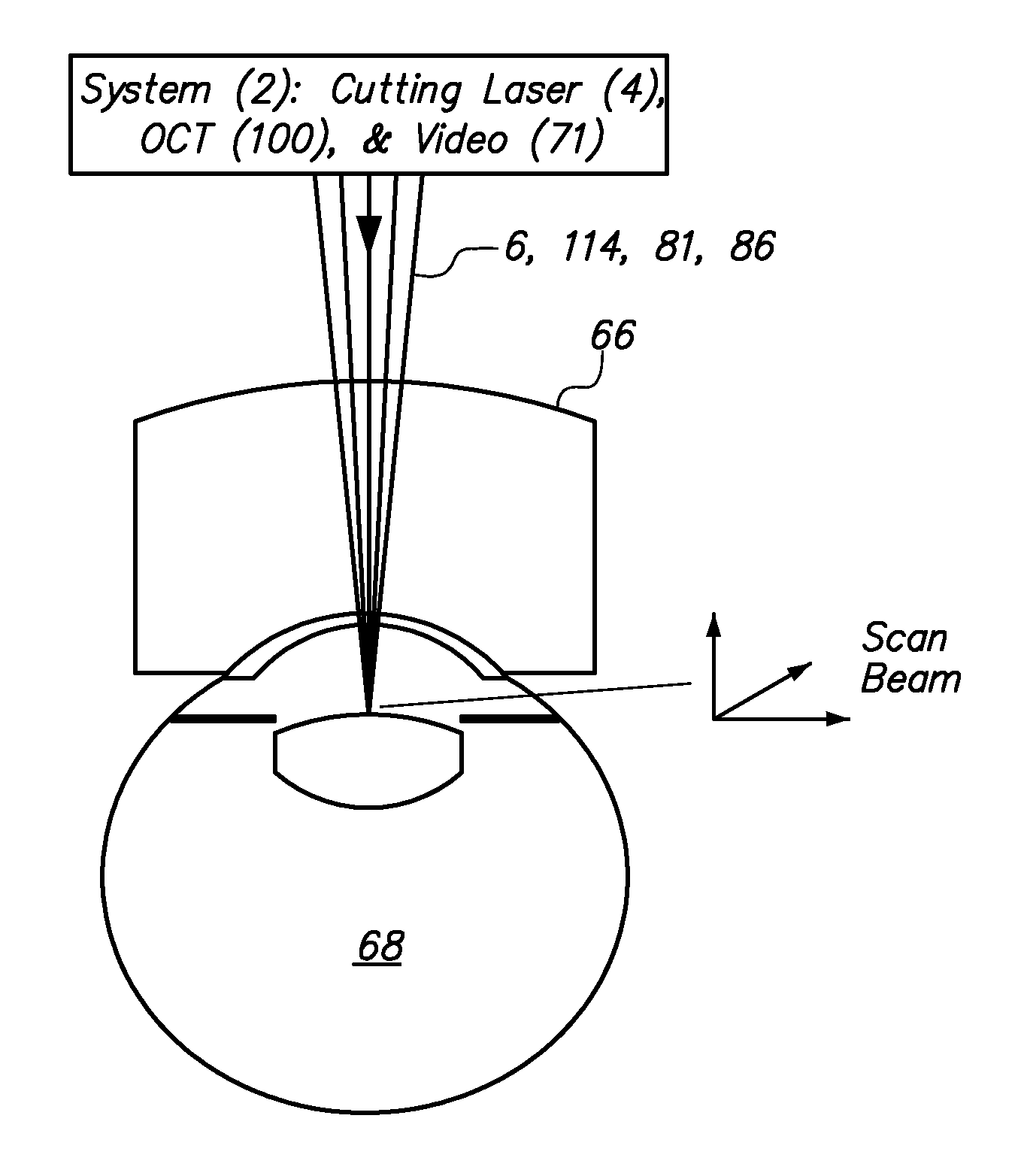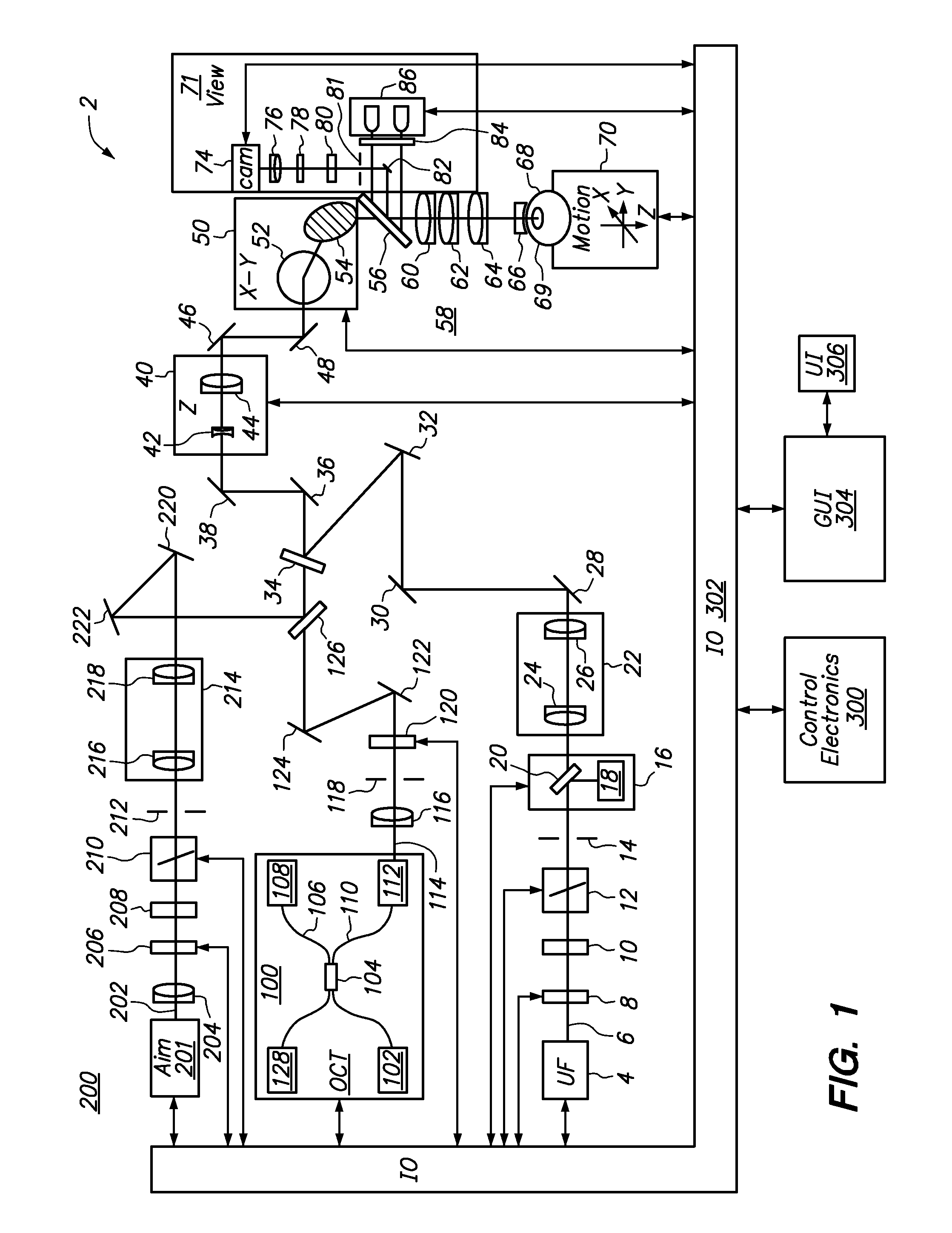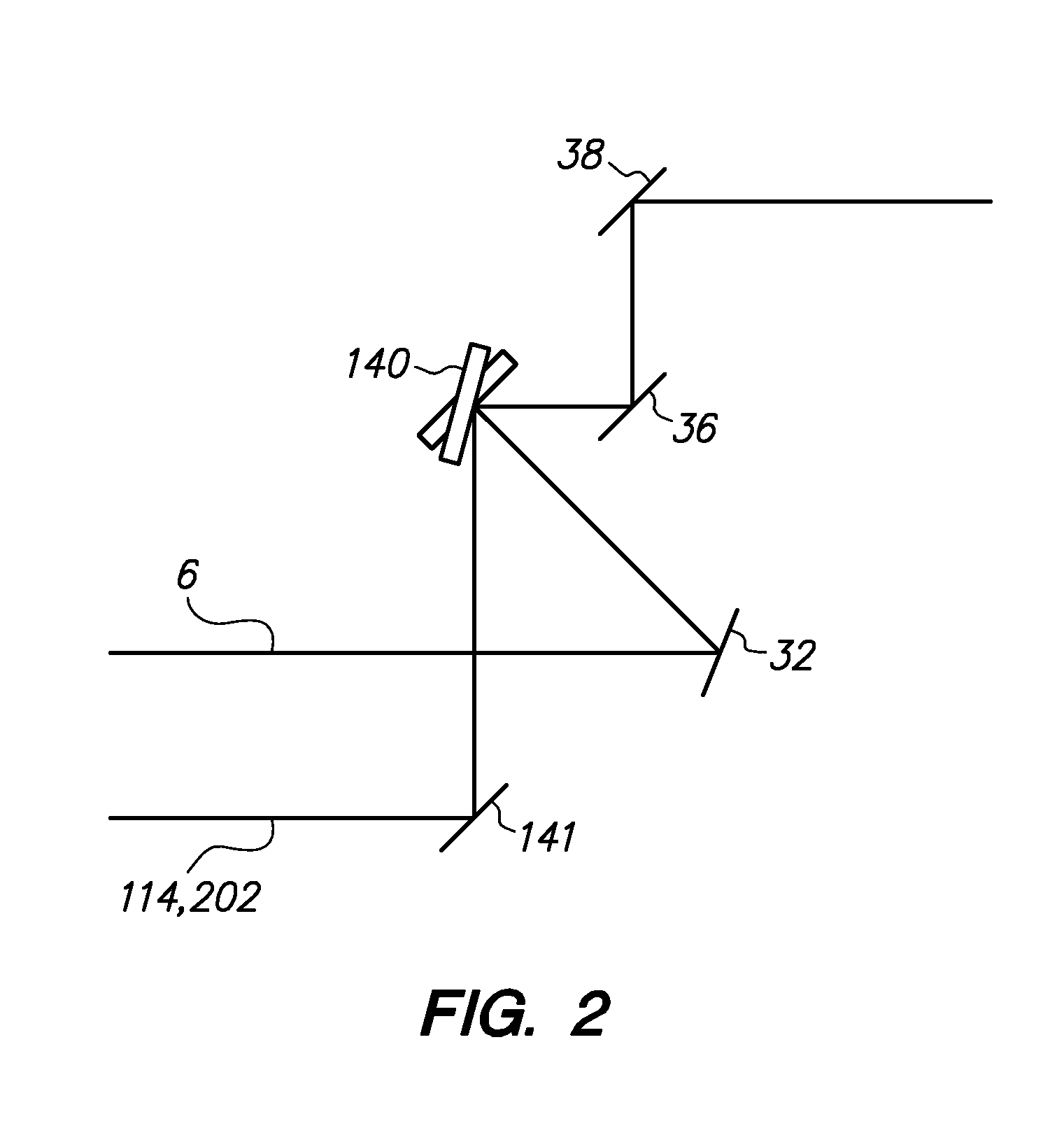Method and apparatus for automated placement of scanned laser capsulorhexis incisions
a technology of scanned laser and capsulorhexis, which is applied in the field of ophthalmic surgical procedures and systems, can solve the problems of difficult mechanical rupture, inability of surgeons to adequately visualize the capsule, and difficulty in implantation of intraocular lenses. achieve the effect of facilitating the implantation of intraocular lenses
- Summary
- Abstract
- Description
- Claims
- Application Information
AI Technical Summary
Benefits of technology
Problems solved by technology
Method used
Image
Examples
Embodiment Construction
[0035]The present invention can be implemented by a system that projects or scans an optical beam into a patient's eye 68, such as system 2 shown in FIG. 1 which includes an ultrafast (UF) light source 4 (e.g. a femtosecond laser). Using this system, a beam may be scanned in a patient's eye in three dimensions: X, Y, Z. In this embodiment, the UF wavelength can vary between 1010 nm to 1100 nm and the pulse width can vary from 100 fs to 10000 fs. The pulse repetition frequency can also vary from 10 kHz to 250 kHz. Safety limits with regard to unintended damage to non-targeted tissue bound the upper limit with regard to repetition rate and pulse energy; while threshold energy, time to complete the procedure and stability bound the lower limit for pulse energy and repetition rate. The peak power of the focused spot in the eye 68 and specifically within the crystalline lens 69 and anterior capsule of the eye is sufficient to produce optical breakdown and initiate a plasma-mediated ablat...
PUM
 Login to View More
Login to View More Abstract
Description
Claims
Application Information
 Login to View More
Login to View More - R&D
- Intellectual Property
- Life Sciences
- Materials
- Tech Scout
- Unparalleled Data Quality
- Higher Quality Content
- 60% Fewer Hallucinations
Browse by: Latest US Patents, China's latest patents, Technical Efficacy Thesaurus, Application Domain, Technology Topic, Popular Technical Reports.
© 2025 PatSnap. All rights reserved.Legal|Privacy policy|Modern Slavery Act Transparency Statement|Sitemap|About US| Contact US: help@patsnap.com



